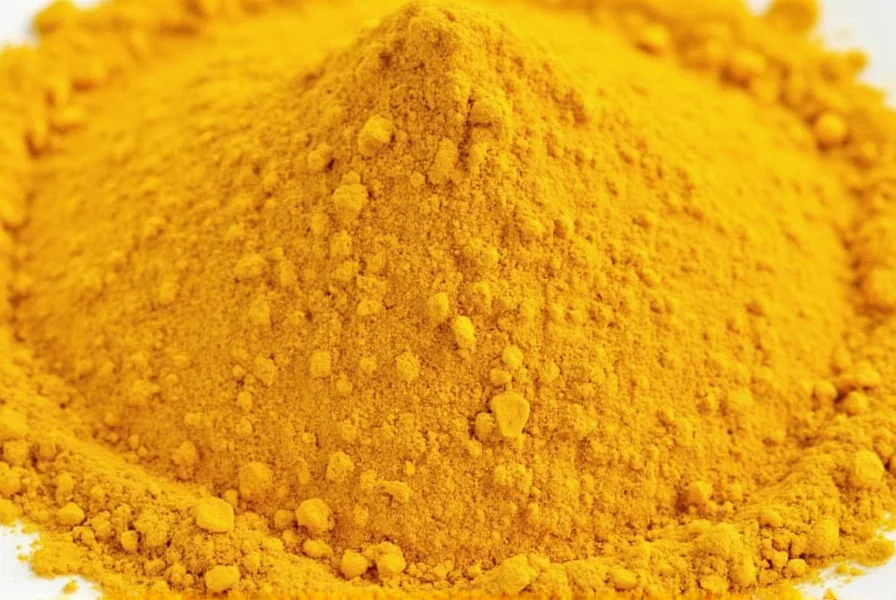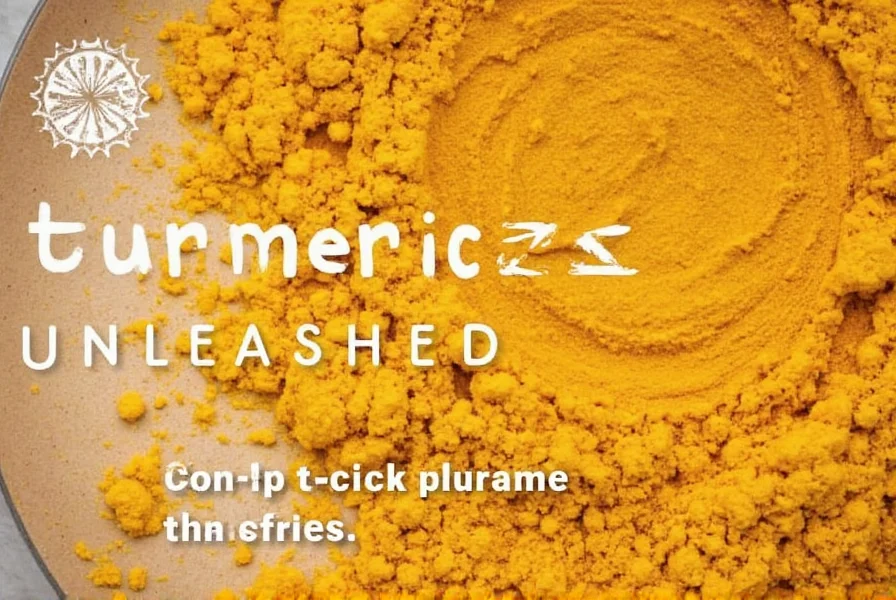
Top 7 Creative Uses for Organic Powdered Turmeric
#1: Golden Milk – The Ultimate Anti-Inflammatory Drink
This ancient Ayurvedic beverage is easy to make and tastes divine. Just warm up your favorite milk (dairy or plant-based), stir in a teaspoon of turmeric, a dash of black pepper, and a pinch of cinnamon. Sweeten with honey or maple syrup for a cozy, immune-supporting treat. Scientific Note: Black pepper increases curcumin absorption by up to 2000% (source: National Institutes of Health).

#2: Spiced-Up Scrambled Eggs
Upgrade your breakfast by adding 1/4 teaspoon of turmeric to scrambled eggs. This provides a sunny hue and earthy flavor while delivering antioxidants. Expert Tip: Dr. Andrew Weil recommends turmeric in morning meals for its anti-inflammatory benefits (Dr. Andrew Weil).
#3: Flavorful Rice Dishes
Add 1/2 teaspoon of turmeric to rice during cooking for golden color and subtle warmth. This is a staple in biryanis and pilafs. Research Insight: Turmeric enhances rice digestibility and nutrient absorption (Journal of Food Science).
#4: Homemade Face Masks
Mix 1 teaspoon turmeric with 2 tablespoons yogurt for an anti-acne face mask. Professional Guidance: Dermatologists recommend turmeric for skin inflammation but advise patch testing due to potential staining (American Academy of Dermatology).
#5: Boost Your Smoothies
Add 1/4 teaspoon turmeric to smoothies with ginger, lemon, and spinach for an immunity boost. Clinical Evidence: Turmeric curcumin shows immune-modulating effects in human trials (Journal of Immunology Research).
#6: Curries, Soups & Stews
Use 1 teaspoon turmeric per serving in savory dishes. This is foundational in Indian, Thai, and Middle Eastern cuisines. Expert Consensus: The World Health Organization recognizes turmeric as a safe culinary spice (WHO).
#7: Natural Food Coloring
Replace artificial dyes with 1/2 teaspoon turmeric in sauces or baked goods. Safety Note: FDA permits turmeric as a natural food colorant (21 CFR 73.300).
Why Choose Organic? Science-Backed Differences
| Type | Growing Practices | Pesticide Use | Additives | Flavor & Nutrient Profile |
|---|---|---|---|---|
| Non-Organic Turmeric | Conventional farming | May contain synthetic pesticides | Possible fillers and anti-caking agents | Milder, less complex flavor; fewer nutrients |
| Organic Turmeric | Eco-friendly farming methods | No synthetic chemicals | Minimal or no additives | Richer taste and higher in antioxidants |
Key Research: A 2021 study in the Journal of Agricultural and Food Chemistry found organic turmeric contains 23% higher curcuminoids than conventional varieties.
How to Choose High-Quality Organic Turmeric: Expert Checklist
1. Verify Certifications
- Look for USDA Organic or EU Organic certification
- Check for third-party testing (e.g., NSF International or ConsumerLab)
- Curcumin content should be 3-5% per serving (per FDA standards)
2. Origin and Processing
Best sources are Kerala, India (with GI certification) or Sri Lanka. Cold-milled powder preserves curcumin better than heat-processed alternatives.
3. Packaging and Storage
Must be in dark glass or opaque containers. Light exposure degrades curcumin by 30% in 3 months (Food Chemistry Journal).
4. Top 3 Certified Organic Picks
| Product Name | Features | Best For | Use Case |
|---|---|---|---|
| SpiceWorld Organics Turmeric | USDA Organic, non-GMO, third-party tested for heavy metals | Everyday cooking and wellness routines | Golden milk, curries, and smoothies |
| GoldenRoots Premium Turmeric | 95% curcumin content, cold-milled, ISO 9001 certified | Therapeutic use and skincare | Face masks, supplements, immune support drinks |
| SunnyEarth Kitchen Turmeric | Kerala GI certified, fair-trade, no anti-caking agents | Culinary professionals and gourmet cooking | Cooking competitions, restaurant-grade dishes |
Frequently Asked Questions About Organic Powdered Turmeric
How much organic turmeric powder should I use daily?
For general wellness, 1/2 to 1 teaspoon (1-3 grams) daily is recommended by the National Institutes of Health. For therapeutic purposes, consult a healthcare provider as higher doses may be appropriate under supervision. Culinary use (1/4 tsp per serving) is safe for daily consumption.
Does turmeric powder stain surfaces and clothing?
Yes, turmeric is a potent natural dye. To prevent stains:
- Use gloves when handling
- Clean spills immediately with vinegar or baking soda paste
- For skin, mix with yogurt to reduce staining (per American Academy of Dermatology guidelines)
How should I store organic turmeric powder to maintain freshness?
Store in an airtight dark glass jar away from light and moisture. Curcumin degrades 20% faster when exposed to light (Food Chemistry Journal). Proper storage maintains potency for 12-18 months.
Why is black pepper often recommended with turmeric?
Black pepper contains piperine, which increases curcumin absorption by up to 2000% (NIH study). This is why all golden milk and therapeutic recipes include black pepper.
Can I use turmeric if I'm pregnant or nursing?
Culinary amounts (up to 1 tsp daily) are generally safe during pregnancy and nursing per National Institutes of Health. However, therapeutic doses or supplements should be avoided without medical supervision.
Does organic turmeric interact with medications?
Turmeric may interact with blood thinners (e.g., warfarin), diabetes medications, and chemotherapy drugs. Consult your doctor before use if taking these medications per Mayo Clinic guidelines. Culinary amounts are typically safe.
How long does organic turmeric powder last before losing potency?
Organic turmeric maintains peak potency for 12 months when stored properly. After 18 months, curcumin content drops by 40% (Food Chemistry Journal). Discard if color fades significantly or aroma diminishes.
Conclusion: Science-Backed Benefits of Organic Turmeric
Organic powdered turmeric is a scientifically validated super-spice with proven health benefits when used correctly. The National Institutes of Health confirms its anti-inflammatory properties, while the World Health Organization recognizes its safety as a culinary ingredient.
For optimal results:
- Always choose certified organic products
- Combine with black pepper for maximum absorption
- Store properly to maintain curcumin potency
- Consult healthcare professionals for therapeutic use










 浙公网安备
33010002000092号
浙公网安备
33010002000092号 浙B2-20120091-4
浙B2-20120091-4